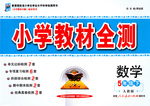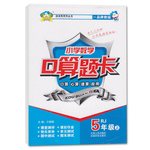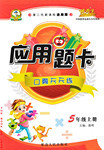题目内容
【题目】A few weeks ago, I called an Uber to take me to the Boston airport for a flight home for the holidays. As I slid into the back seat of the car, the warm intonations(语调) of the driver’s accent washed over me in a familiar way.
I learned that he was a recent West African immigrant with a few young children, working hard to provide for his family. I could relate: I am the daughter of two Ethiopian immigrants who made their share of sacrifices to ensure my success. I told him I was on a college break and headed home to visit my parents. That’s how he found out I go to Harvard. An approving eye glinted at me in the rearview window, and quickly, we crossed the boundaries of rider and driver. I became his daughter, all grown up — the product of his sacrifice.
And then came the fateful question: “What do you study?” I answered “history and literature” and the pride in his voice faded, as I knew it might. I didn’t even get to add “and African-American studies” before he cut in, his voice thick with disappointment, “All that work to get into Harvard, and you study history?”
Here I was, his daughter, squandering the biggest opportunity of her life. He went on to deliver the age-old lecture that all immigrant kids know. We are to become doctors (or lawyers, if our parents are being generous) — to make money and send money back home. The unspoken demand, made across generations, which my Uber driver laid out plainly, is simple: Fulfill your role in the narrative(故事) of upward mobility so your children can do the same.
I used to feel anxious and backed into a corner by the questioning, but now as a junior in college, I’m grateful for their support more than anything. This holiday season, I’ve promised myself I won’t huff and get annoyed at their inquiries. I won’t defensively respond with “but I plan to go to law school!” when I get unrequested advice. I’ll just smile and nod, and enjoy the warmth of the occasion.
【1】What disappointed the driver?
A. The author’s attitude towards him.
B. The school that the author is attending.
C. The author’s majors in history and literature.
D. The author’s interests in African American studies.
【2】Which of the following can replace the underlined word “squandering” in Paragraph 4?
A. wasting
B. creating
C. valuing
D. seizing
【3】Why are immigrant kids expected to be doctors or lawyers?
A. Their parents want them to move upward in society.
B. Their parents are high achieving as well.
C. They have more opportunities.
D. They are very smart in general.
【4】How did the author react to the driver’s questioning?
A. Getting upset.
B. Feeling satisfied.
C. Defending herself.
D. Appreciating his concern.
【答案】
【1】C
【2】A
【3】A
【4】D
【解析】这是一篇关于教育方面的短文阅读。文章主要讲述了不要因别人的质问而怀疑自己选择的专业。
【1】推理判断题。根据文章第三段and the pride in his voice faded, as I knew it might. I didn’t even get to add “and African-American studies” before he cut in, his voice thick with disappointment, “All that work to get into Harvard, and you study history?可以推断出,司机对作者主修历史和文学感到很失望。故选C。
【2】词义猜测题。由这位优步移民司机先自豪,然后失望以及接着对我的教训这一情感变化的线索可以推测出,他是认为“我”浪费了一个人生中最大的机会。故可以猜测出squandering为“浪费”之意。故选A。
【3】推理判断题。根据文章倒数第二段Fulfill your role in the narrative(故事) of upward mobility so your children can do the same.可知,他们的父母希望他们在社会上向上发展,而这些职业在社会上有地位,更能向上流动。故选A。
【4】推理判断题。根据文章最后一段I’ll just smile and nod, and enjoy the warmth of the occasion.可以推断出,作者对司机的关心还是很感激的。故选D。

 小学教材全测系列答案
小学教材全测系列答案 小学数学口算题卡脱口而出系列答案
小学数学口算题卡脱口而出系列答案 优秀生应用题卡口算天天练系列答案
优秀生应用题卡口算天天练系列答案【题目】七选五
Recently some American scientists have a useful piece of advice to people in industrialized nations. They say people should eat more of the same kind of food eaten by humans living more than 10, 000 years ago.
The scientists say that the human life has changed greatly. Our bodies have not been able to deal with these changes in lifestyle and this has led to new kinds of sicknesses. These new sicknesses were not known in ancient times.So they are called “diseases of civilization”.
Scientists noted that people in both the Old Stone Age and the New Stone Age enjoyed very little alcohol or tobacco, probably none. However, a change in food is one of the main differences between life in ancient times and that of today.
Stone Age people hunted wild animals for their meat, which had much less fat than domestic ones. They ate a lot of fresh wild vegetables and fruits. They did not have milk or any other dairy products, and they made very little use of grains.We eat six times more salt than our ancestors. We eat more sugar. We eat twice as much fat but only one third as much protein and much less vitamin C.
But scientists say that we would be much healthier if we eat much the same way the ancient people did, cutting the amount of fatty, salty and sweet food.
A. People today probably don't want to live like our ancestors. |